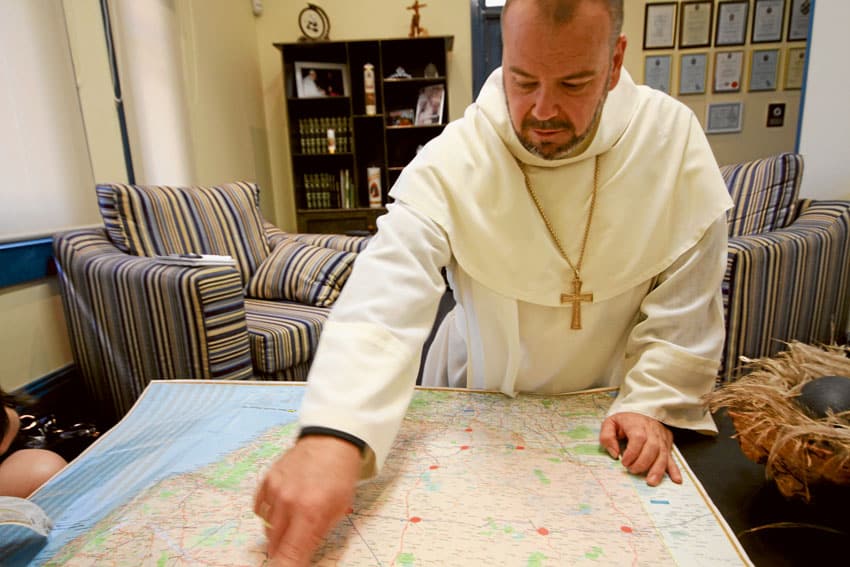
According to Bishop Columba Macbeth-Green OSPPE, the Church plays an important role in keeping hope alive in his drought-stricken diocese of Wilcannia-Forbes.
“The Christian message is hope. So it’s a pretty important role here … Having a place where people can come and have a good cry and know that they’re not going through this on their own.”
“To actually have a church building and have services in the place, is a reminder that there is something bigger than what’s happening in the world. There is a spiritual reality.”
In some drought-affected areas of his diocese the devastation has been such that recovery will not be quick, or easy, even if rain does come.
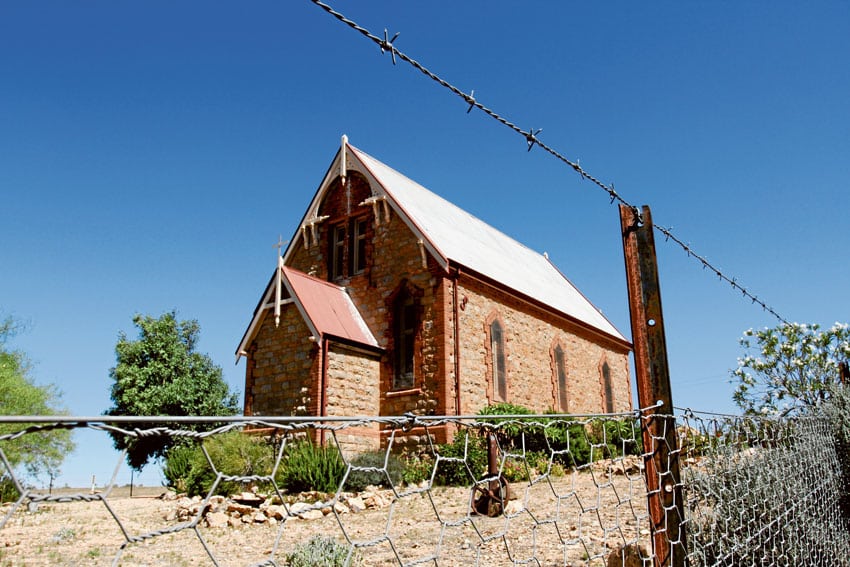
“In parts of the diocese the kangaroos are too weak to get off the road,” said Bishop Columba.
“When you’re driving along you can see they’re very lethargic because they’re starving. That’s the situation and it’s not something that a bit of rain is going to fix.”
While the recent deluge of rain that hit Sydney reached the eastern part of Wilcannia-Forbes, the rest of the diocese missed out.
This year, Archbishop Anthony Fisher OP set up a Drought Relief Fund to assist the people of Wilcannia-Forbes, which to date has raised $11,000. “The Archbishop wanted to help his brother bishop,” said Michael Digges, Business Manager of the Sydney Archdiocese.
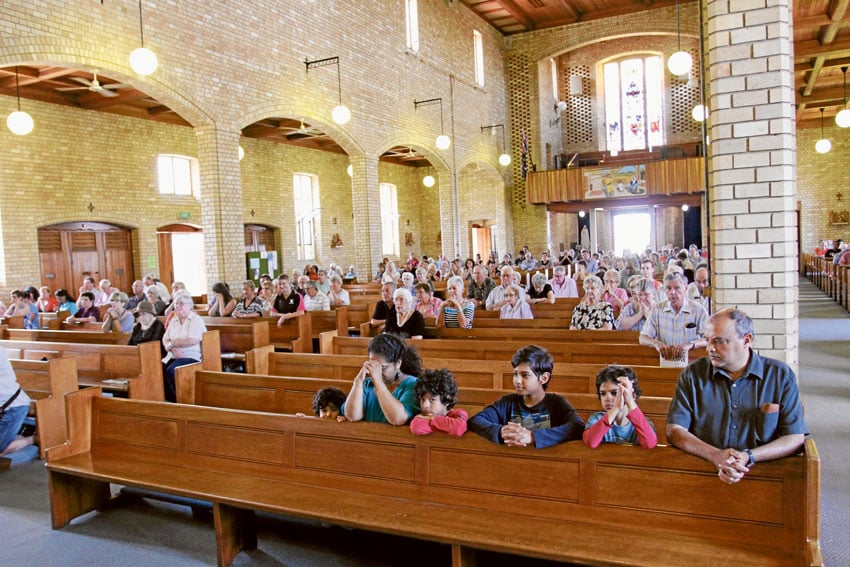
Mr Digges has also been appointed Financial Administrator of the Wilcannia-Forbes diocese. Along with his finance team he is assisting the Church in the region to remain viable and effective.
“We want the word of God to be preached to the people in remote NSW. We don’t want to have a situation where more parishes get closed down. We want to support the bishop in making that diocese sustainable,” Mr Digges said.
Money raised through the Archbishop’s fund goes towards cash vouchers for those in the diocese struggling financially, and much-needed services offered through CatholicCare.
The Sydney Archdiocese has also assisted Wilcannia-Forbes purchase property for a Carmelite convent in Marouthra, and land for a new school at Moama, in southern NSW, close to the Murray River.
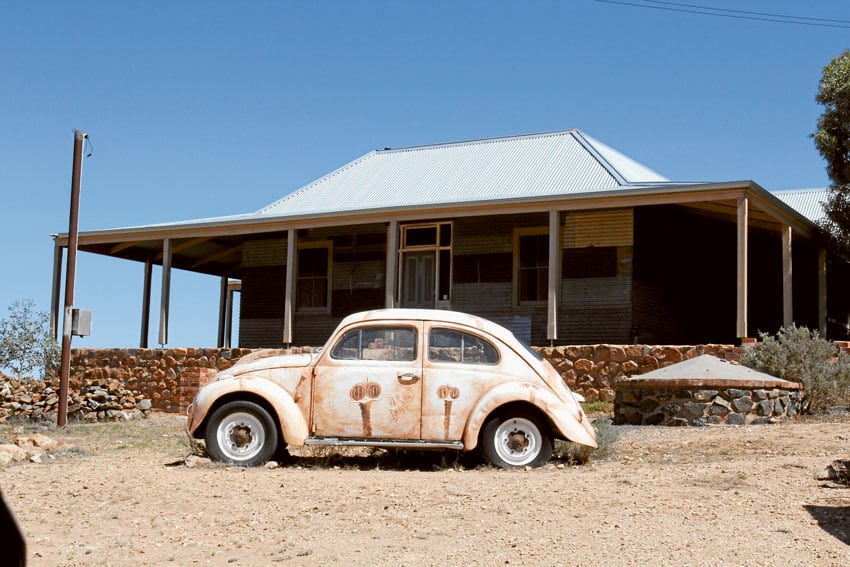
As one of the oldest – and biggest – Catholic dioceses in Australia, Wilcannia-Forbes stretches for more than 414,000 square kilometres in the Western region of NSW.
About 29,000 Catholics currently reside in the sparsely populated diocese, which was established in 1887. There are 19 parishes and a total of 15 priests, most of whom are on loan from other dioceses. Only six are incardinated priests of Wilcannia Forbes.
While the bishop resides in Forbes, on the eastern side of the diocese, the cathedral is in Broken Hill, a nine hour drive away, right on the border between NSW and SA.
Despite the fact many parts have endured severe on-going drought, Bishop Columba says the people of Wilcannia-Forbes are hardy folk who know how to pull together during tough times.
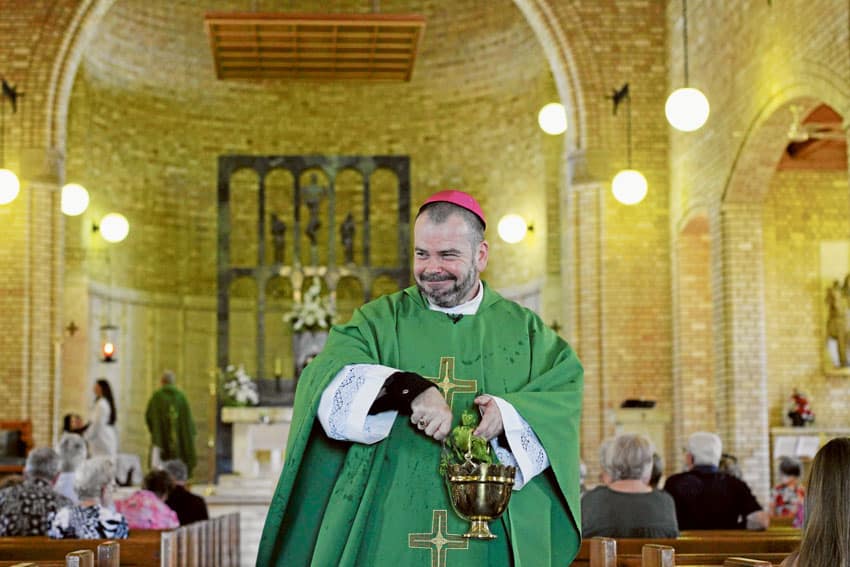
“They’re pretty resilient. They’re fantastic people. They make the best of it because it’s life out here. The drought is not something new. It’s something we have to deal with.”
Meanwhile, the harsh environment they live in has actually brought people closer together, he said.
“It’s really difficult with the drought, and we’re struggling, but gee, there’s a lot of joy. It’s an occasion for us to get together and build strong communities.”
Many in the region however, are quietly struggling to keep their heads above water financially, especially farmers.
“If you’ve had drought over the last 20 years, that puts a lot of stress on the environment and the farms. They haven’t had enough good times to put the savings away,” the Bishop said.
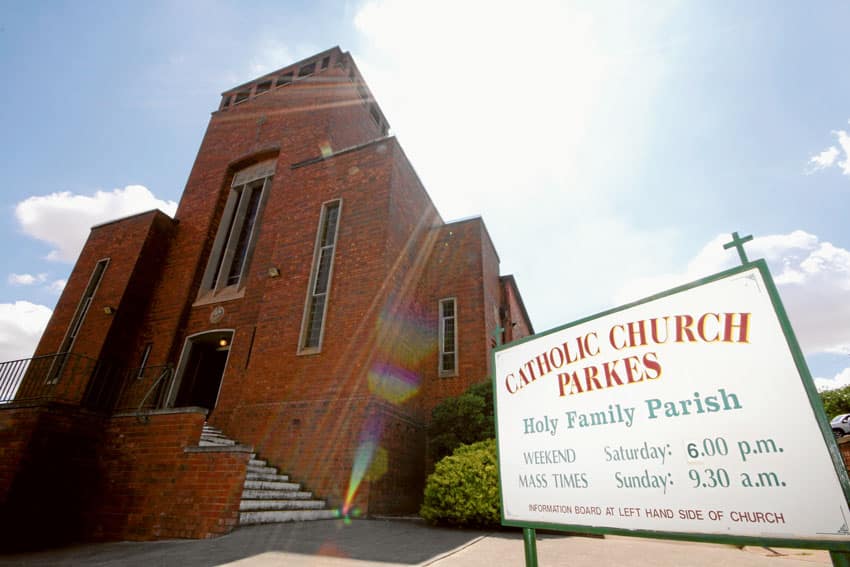
“It grinds them down. It goes with the seasons. If you had a bad season, that means there’s no income for the season. If, in the last 20 years, your bad seasons have outnumbered the good ones, well … do the math.”
Bishop Columba says the presence of the Church is vital. Personally, he tries to spend time among the people as often as he can, visiting the larger, more populated centres as well as the tiny towns in the middle of what seems like nowhere.
He tries to be as visible as possible, travelling around in his four-wheeled drive with his little dog, Molly, for company.
“Presence is really important … that solidarity that you’re there when you could always say, well, there’s not enough money here so we’ll pull out, like many businesses do … I think that’s a really good evangelising witness.”
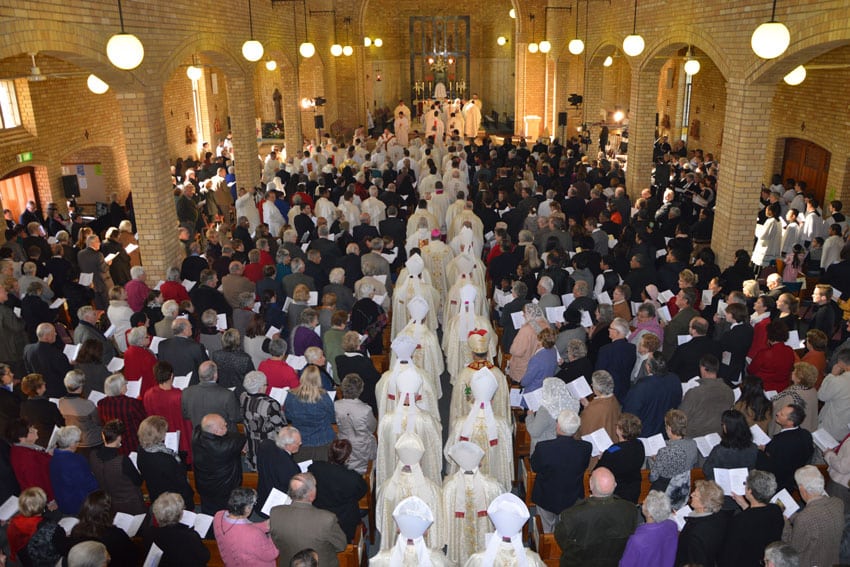
During his travels around the diocese, Bishop Columba regularly distributes the cash vouchers acquired through Archbishop Fisher’s Relief Fund.
“I take a pile and just randomly put them in mail boxes. I might see a family farm, say a little prayer, and put it in the mail box, with a little message saying this is from the generosity of people in the city.”
“It gives them great joy to know people care.”
The Relief Fund also allows CatholicCare to provide some relief by putting on “fun nights” with free food and activities for the kids. The Catholic agency also uses such occasions to offer their services to assist those suffering from mental illness.
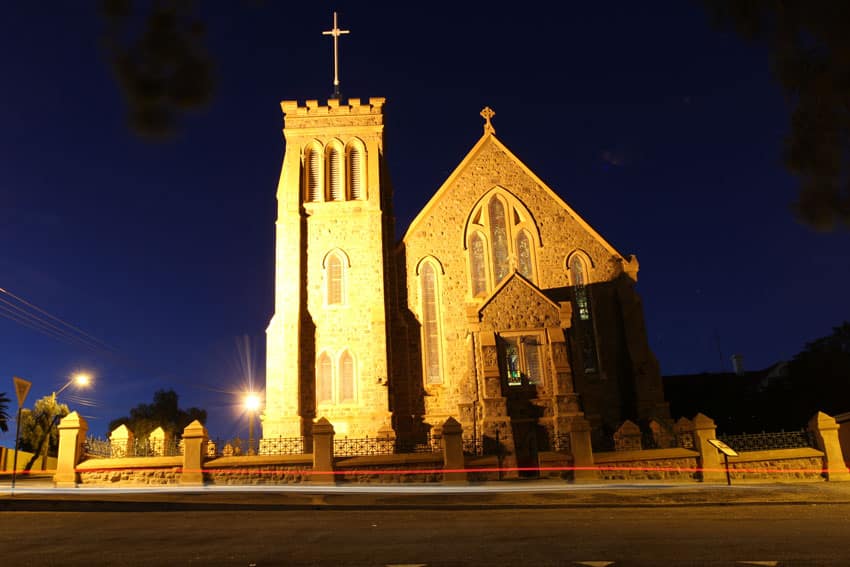
Bishop Columba said mental health is an issue with many on farms feeling isolated and experiencing stress due to the drought.
“Often they can be isolated on the larger properties. There’s also the expectation—if it’s a family farm that’s been in the family for generations and your grip on it is slipping financially because of the drought, well, you can feel like a failure.”
Despite the difficulties, the drought has allowed for stronger and deeper connections between the people of Wilcannia-Forbes, and between country and city folk.
“We band together. That’s the joyful side for people who are having a tough time,” Bishop Columba said.
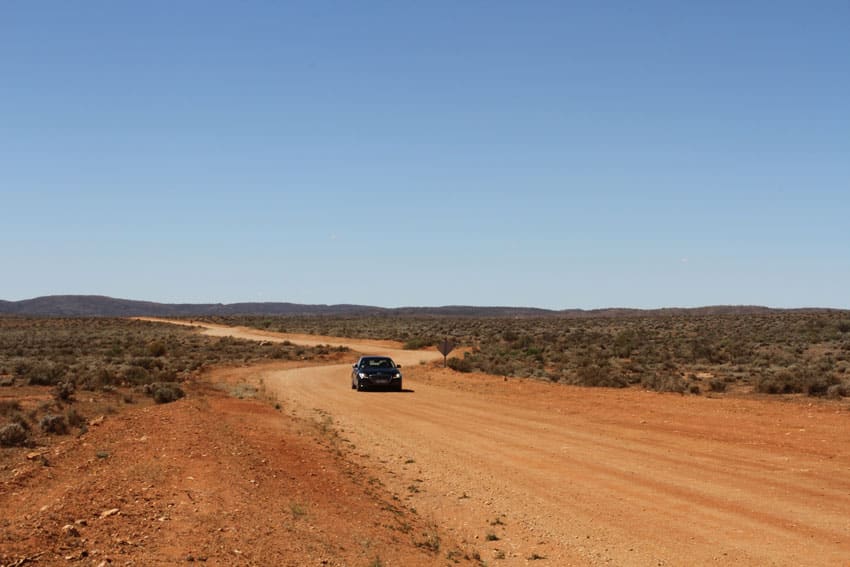
“You can either retreat into your shell, take care of yourself, or you can reach out to others. People out here are just fantastic at reaching out to others. It’s also bringing people together in the cities, the generosity of the people of Sydney, for example.”
“Christ is our hope… If you lose the hope, that’s when you can’t go on. So that’s the Church’s role out here.”
“Just to have a smile and talk to people, to keep your presence here, God’s presence.”
To donate to Bishop Macbeth Green’s work with struggling rural communities, go to www.wf.catholic.org.au
